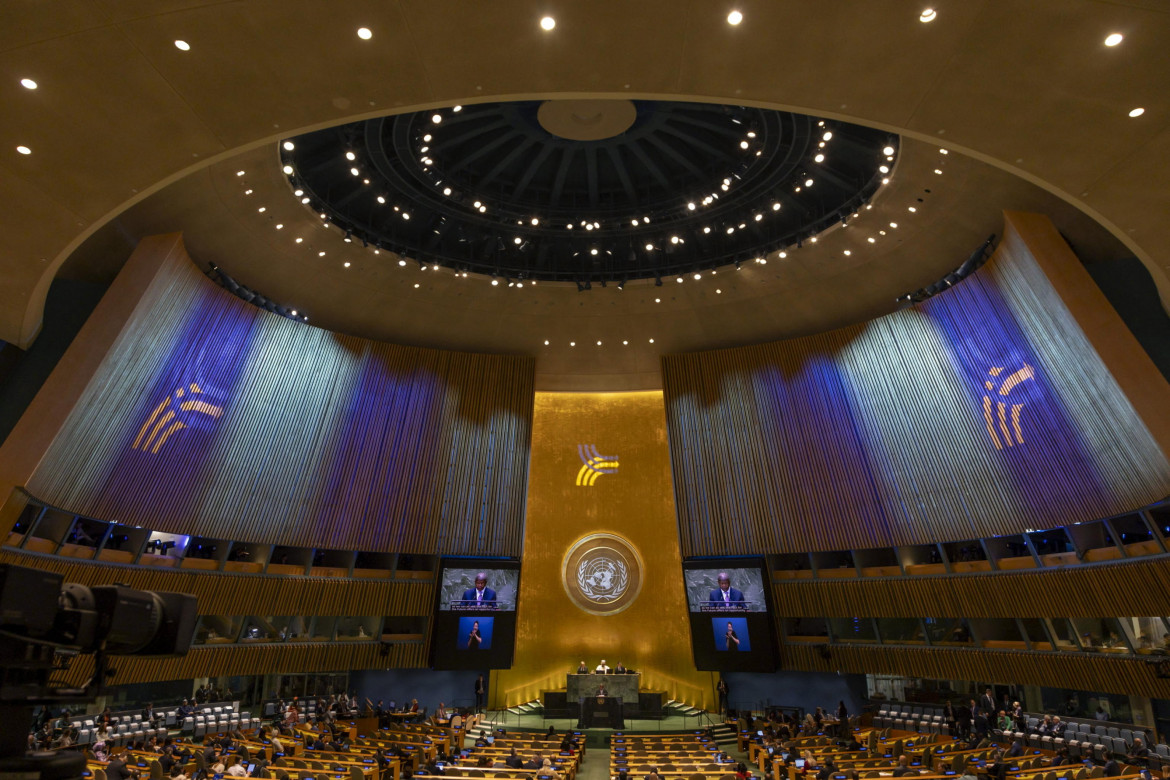Commentary
The UN’s Summit of the Future doesn’t know how to fix the present
The Pact for the Future prescribes the well-worn neoliberal formulas yet again. It once again enshrines economic growth as a goal, the exaltation of protecting intellectual property against all empirical evidence, and the revival of private finance and the private sector overall.

As history continues on its march, stubbornly punctuated by terrorist attacks across borders, the indiscriminate bombing of unarmed populations, genocidal practices that reduce millions to a fate without a future; as environmental devastation renders vast territories of the planet uninhabitable, the UN General Assembly this year was held under the banner of an ambitious (and ambiguous) initiative, the brainchild of Secretary-General Antonio Guterres: the “Summit of the Future.”
The idea of a Summit of the Future, which Guterres wanted to organize as early as 2023, stemmed from the report commissioned by the Secretary General on a strategy for the world after the shock of the pandemic (Our Common Agenda, 2021).
The sixty-page Pact for the Future approved in New York, forged under great pressure after five negotiating drafts, covers such decisive areas as sustainable development, peace and security, technology and digital cooperation, young people and the future generations, and the transformation of global governance with the reform of international financial institutions and the Security Council.
In addition to a resounding statement of intent – with predictably tough negotiations to come on its implementation – the Pact includes the Global Digital Compact, aimed to fill “the moral and regulatory vacuum in which artificial intelligence advances,” according to the Secretary-General. Finally, it also includes a Declaration on Future Generations, proclaiming that they should no longer be excluded from national and international decision-making processes.
A number of reputable commentators from among delegates and civil society have called this summit a great distraction from the international community's glaring failures on the 2030 Agenda for Sustainable Development. Other analysts see it as an attempt to revive those goals in extremis. Ultimately, Guterres's project aims to restore centrality to the beleaguered United Nations, increasingly under attack by the governments themselves, including through greater overtures towards the private sector (corporate and philanthropic) and the inclusion of figures that didn’t play a prominent role before (sportsmen, influencers, etc.).
In the specific case of the summit, this aspiration had to go through a negotiating process that was not entirely beyond reproach. The methods of approving texts were quite unusual, and there were once again consultations with odd “civil society” interlocutors, as happened in Nairobi in May. One can do little but take note.
With the summit concluded, it seems difficult to assess Guterres' stubborn projections of the future while the present continues on its course, with the failure of commitments already made and the striking impotence of international law in the face of the unscrupulous bad actors who are trampling it, emboldened by historical impunity.
The UN Assembly recently passed, by a large majority (147 votes), an unprecedented resolution translating the International Court of Justice's opinion against Israel into political commitments. What will happen now? What concrete outcome will it have for the people of Gaza and the West Bank? These are inescapable questions after a year of genocide witnessed by all.
In the summit's keynote address, the Secretary-General, after a lucid examination of the planetary poly-crisis and stressing the need to overcome the deficit of trust in multilateralism, said that we cannot wait for the advent of perfect times to redraw the foundations of old, geopolitically unbalanced institutional arrangements that are manifestly incapable of giving the world the solutions it needs. He is right about that. However, if we leave out the rhetoric, the basic thrust of the Pact is not convincing.
The document once again enshrines economic growth as a goal, the exaltation of protecting intellectual property against all empirical evidence, and the revival of private finance and the private sector overall, with its market-based solutions and no one to set the rules of the game. The Pact prescribes the well-worn neoliberal formulas yet again, with the only corrective being that it goes beyond the logic of GDP to measure economic performance, without disturbing the unsustainable mechanics of power in an economy that produces inequality and insecurity.
Going through the document, we see privatization strategies being recommended once again in the name of development, which – as we know by this point – prevent access to basic rights such as health, education, food, housing. All silent stories of violations of human dignity that don’t make the headlines, yet mark the lives of a growing number of people around the world, even within a stone's throw of the Glass Palace.
“The United Nations was not created in order to bring us to heaven, but in order to save us from hell,” wrote Dag Hammarskjöld, the UN's second Secretary-General. If we do not confront the hell of the present with immediate and workable interventions to strip away the world's hypocrisy, we won’t get anywhere. No amount of rhetoric will do. The new generations have understood this.
Originally published at https://ilmanifesto.it/il-summit-del-futuro-dellonu-non-sa-aggiustare-il-presente on 2024-09-24
